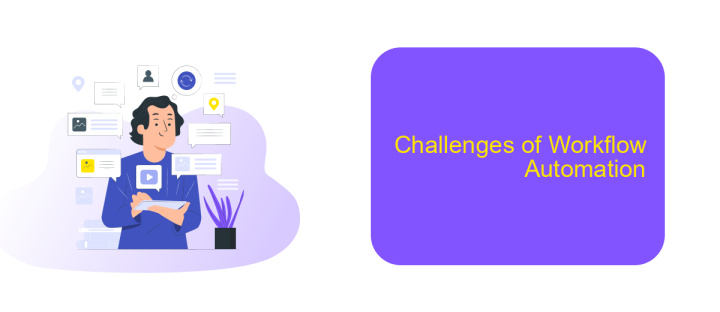Accenture Workflow Automation
In today's fast-paced business environment, efficiency and precision are paramount. Accenture Workflow Automation offers cutting-edge solutions to streamline processes, reduce manual errors, and enhance productivity. By leveraging advanced technologies and innovative strategies, Accenture helps organizations automate routine tasks, freeing up valuable time and resources for more strategic initiatives. Discover how Accenture's expertise can transform your workflow and drive business success.
Introduction
Accenture Workflow Automation is revolutionizing the way businesses operate by streamlining processes and enhancing efficiency. By leveraging advanced technologies, organizations can reduce manual tasks, minimize errors, and improve overall productivity. This transformation is crucial for companies striving to maintain a competitive edge in today's fast-paced market.
- Increased efficiency through automation
- Reduction of human error
- Enhanced productivity and cost savings
- Seamless integration with existing systems
One of the key aspects of successful workflow automation is the ability to integrate various tools and services seamlessly. Platforms like ApiX-Drive facilitate these integrations, allowing businesses to connect different applications effortlessly. By automating data transfer and synchronization, ApiX-Drive ensures that all systems work in harmony, further enhancing the benefits of Accenture Workflow Automation. Embracing such technologies enables organizations to focus on strategic initiatives while routine tasks are handled efficiently.
Benefits of Workflow Automation

Workflow automation offers numerous benefits, significantly enhancing operational efficiency and accuracy. By automating repetitive tasks, businesses can reduce the risk of human error, ensuring consistent and reliable outcomes. This not only saves time but also allows employees to focus on more strategic activities, driving innovation and growth. Additionally, automated workflows can streamline processes, reducing bottlenecks and improving overall productivity.
Another key advantage is the seamless integration of various systems and applications. Tools like ApiX-Drive facilitate the integration of different services, enabling smooth data transfer and communication between platforms. This ensures that all parts of the business are synchronized, providing a unified and cohesive operational environment. Moreover, workflow automation can lead to cost savings by minimizing the need for manual intervention and reducing labor costs. Overall, adopting workflow automation is a strategic move that can lead to significant improvements in business performance and efficiency.
Applications of Workflow Automation

Workflow automation has become an essential tool for businesses seeking to streamline operations and enhance productivity. By automating repetitive tasks, companies can focus on more strategic activities, reduce human error, and improve overall efficiency.
- Customer Support: Automated workflows can route customer inquiries to the appropriate department, ensuring quick and accurate responses.
- Human Resources: Automate onboarding processes, leave approvals, and performance evaluations to save time and resources.
- Marketing: Schedule and manage email campaigns, social media posts, and lead generation activities seamlessly.
- Finance: Streamline invoicing, expense tracking, and financial reporting to maintain accurate records and compliance.
- IT Services: Automate ticketing systems and routine maintenance tasks to improve service delivery and reduce downtime.
Integrating various applications and services can further enhance the capabilities of workflow automation. Tools like ApiX-Drive facilitate seamless integration between different software platforms, allowing data to flow effortlessly across systems. This ensures that all departments are synchronized, leading to a more cohesive and efficient operational environment.
Challenges of Workflow Automation

Workflow automation offers numerous benefits, but it also presents several challenges that organizations must address to achieve optimal results. Implementing workflow automation requires careful planning and consideration of various factors that can impact its effectiveness.
One of the primary challenges is the integration of different systems and tools. Organizations often use a variety of software applications, and ensuring seamless communication between them can be complex. Services like ApiX-Drive can facilitate these integrations by providing a platform that connects disparate systems, enabling smooth data flow and process automation.
- Compatibility issues between different software applications
- Data security and privacy concerns
- Resistance to change from employees
- High initial costs and ongoing maintenance
Another significant challenge is managing the change within the organization. Employees may resist adopting new automated processes due to fear of job loss or unfamiliarity with the new technology. Effective training and clear communication about the benefits of automation are essential to overcoming this resistance and ensuring a successful transition.
Future Trends in Workflow Automation
As we look towards the future of workflow automation, several key trends are emerging that promise to transform how businesses operate. One significant trend is the increasing integration of artificial intelligence and machine learning to enhance decision-making processes. These technologies enable systems to learn from data, predict outcomes, and automate complex tasks that previously required human intervention. Additionally, the rise of low-code and no-code platforms is democratizing automation, allowing non-technical users to create and manage automated workflows with ease.
Another important trend is the growing emphasis on seamless integration between various business tools and applications. Platforms like ApiX-Drive are at the forefront of this movement, offering services that facilitate the connection of different systems without the need for extensive coding. This not only streamlines operations but also ensures that data flows smoothly across the organization, enhancing overall efficiency. Furthermore, the adoption of cloud-based automation solutions is expected to increase, providing businesses with scalable and flexible options to meet their evolving needs.
FAQ
What is Accenture Workflow Automation?
How can workflow automation benefit my business?
What types of processes can be automated with Accenture Workflow Automation?
How do I integrate workflow automation into my existing systems?
Is workflow automation suitable for small businesses?
Time is the most valuable resource in today's business realities. By eliminating the routine from work processes, you will get more opportunities to implement the most daring plans and ideas. Choose – you can continue to waste time, money and nerves on inefficient solutions, or you can use ApiX-Drive, automating work processes and achieving results with minimal investment of money, effort and human resources.

